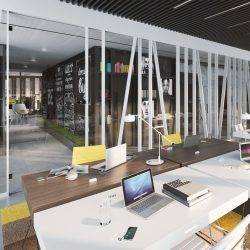November 13, 2017
Serviced offices and coworking spaces boom in Manchester in response to growing customer demand
 Rising demand from businesses for flexible working space has sparked a boom in the provision of coworking spaces serviced offices in Manchester in 2017, according to the latest office market snapshot by real estate advisors Colliers International. The report showed serviced office providers addressed the need for flexible working from small and growing operators by taking in excess of 100,000 sq ft of space in Manchester in the first three quarters of 2017. Major developments included global co-working specialist WeWork following the opening of its first office outside London at No 1 Spinningfields by adding another 44,000 sq ft at One St Peter’s Square and property developer Allied London launching its own co-working brand All Work & Social to operate alongside WeWork at Spinningfields.
Rising demand from businesses for flexible working space has sparked a boom in the provision of coworking spaces serviced offices in Manchester in 2017, according to the latest office market snapshot by real estate advisors Colliers International. The report showed serviced office providers addressed the need for flexible working from small and growing operators by taking in excess of 100,000 sq ft of space in Manchester in the first three quarters of 2017. Major developments included global co-working specialist WeWork following the opening of its first office outside London at No 1 Spinningfields by adding another 44,000 sq ft at One St Peter’s Square and property developer Allied London launching its own co-working brand All Work & Social to operate alongside WeWork at Spinningfields.
































October 2, 2017
Time to start a new culture to tackle stigma on mental wellbeing issues in the workplace
by Kate Cooper • Comment, Wellbeing
More →